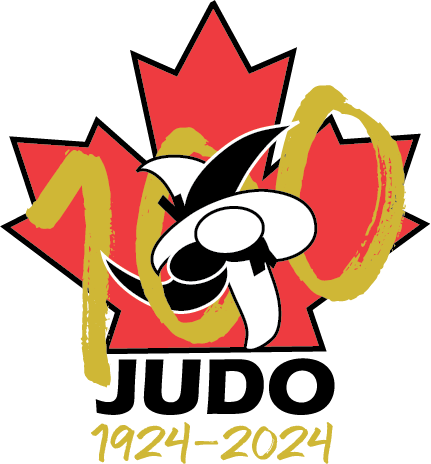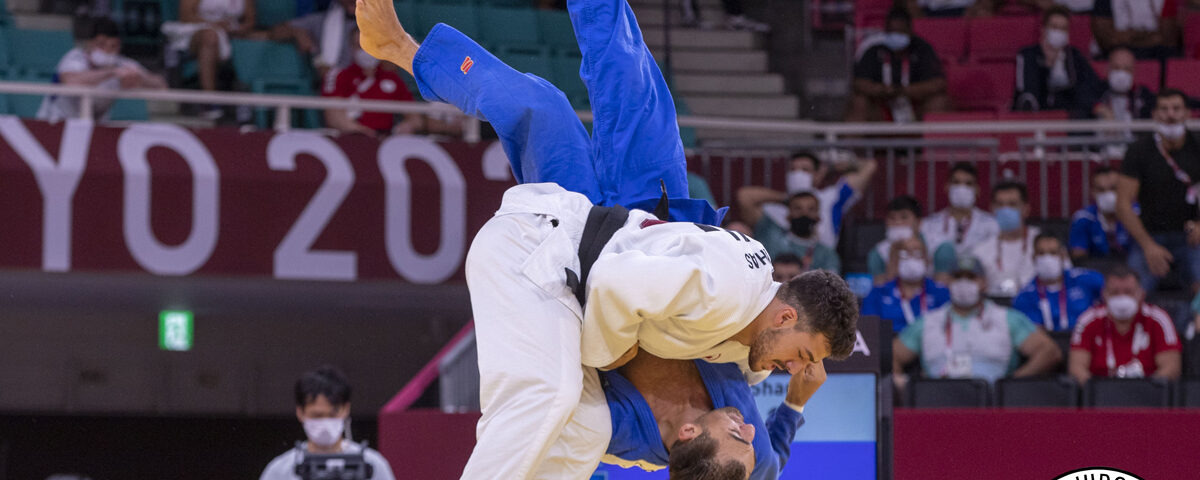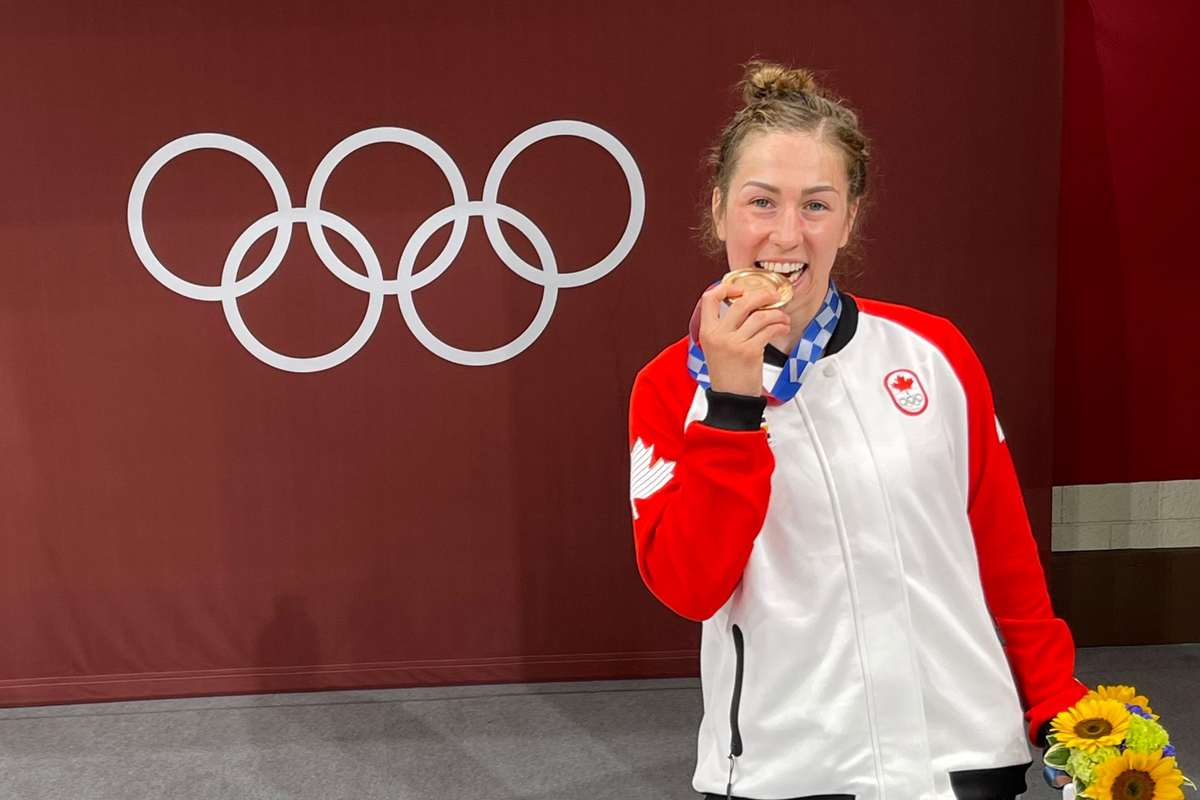
Catherine Beauchemin-Pinard Claims Second Unprecedented Medal for Canada
27 July 2021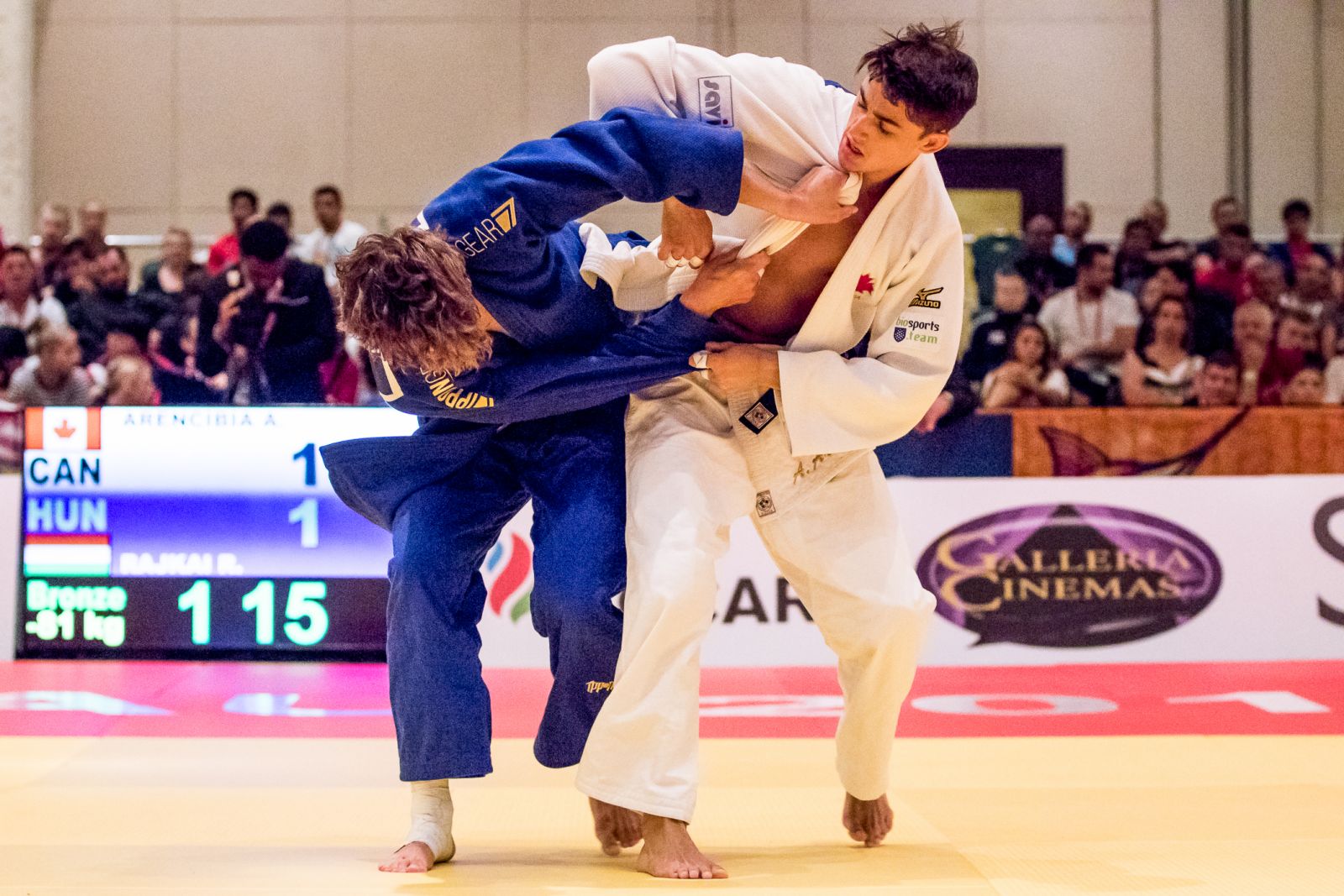
Alexandre Arencibia earns fifth place in encouraging return to the tatami
13 August 2021A third Canadian judoka came close to stepping onto the podium at the Tokyo Olympic Games on Thursday as Shady El Nahas advanced to one of the two bronze medal finals in the under-100 kg category. At the end of a tough battle, however, the Torontonian came up just short of victory and consequently finished fifth, dashing his high hopes.
Although he had a very good run in Japan, the 23-year-old, who has been training at Judo Canada’s National Training Centre in Montréal for the past four years, was not in the mood to celebrate. “I’m not satisfied at all! I came here to win, and I believed that I could. I felt ready both mentally and physically. Unfortunately, that’s not what happened.”
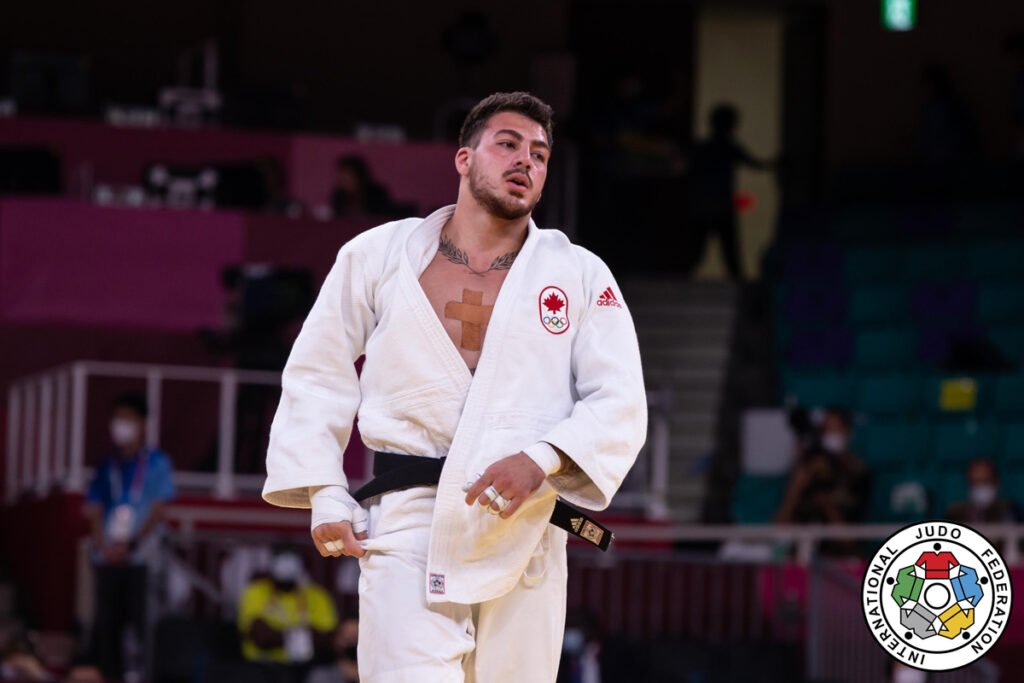
The first-time Olympian was very calm on the tatamis. “At every tournament, I want to win gold, so I’m always in the same headspace. Honestly, it was only when I got to the bronze medal match that I thought to myself, ‘Wow, I’m at the Olympics!’ Up until that point, it was like any other competition. I just wanted to win.”
In his fight for bronze, El Nahas, who is ranked eighth in the world, put up quite a fight against Portugal’s Jorge Fonseca, second in the international rankings and two-time defending world champion in the weight class. On several occasions, he managed to position his hands well, but was unable to score. With about thirty seconds to go, his opponent scored a waza-ari.
Although Fonseca received a second penalty afterwards, El Nahas was unable to close the gap, despite numerous attempted attacks.
“I was in control for most of the fight, and I could see that he was getting tired more quickly that I was. Maybe I got a little too excited about that. I attacked and he scored the waza-ari. I was a little shocked and wasn’t able to catch up afterwards,” said the Ontarian, who has beaten Fonseca twice in the past but lost their most recent match-up in the Masters Tournament repechage in January.
El Nahas had advanced to the bronze medal round after winning his repechage match against Israel’s Peter Paltchik, who is currently ranked fourth internationally. In a tight and exhausting fight, he scored an ippon in Golden Score (overtime), landing an ouchi-gari, or major inner reaping throw.
“Paltchik is one of the best in the world. I knew it was going to take a long time to win that fight, which was quite tactical. It was the third time we fought each other and this time, I knew what I had to do,” said the Canadian, who has now won two of his three duels against the Israeli.
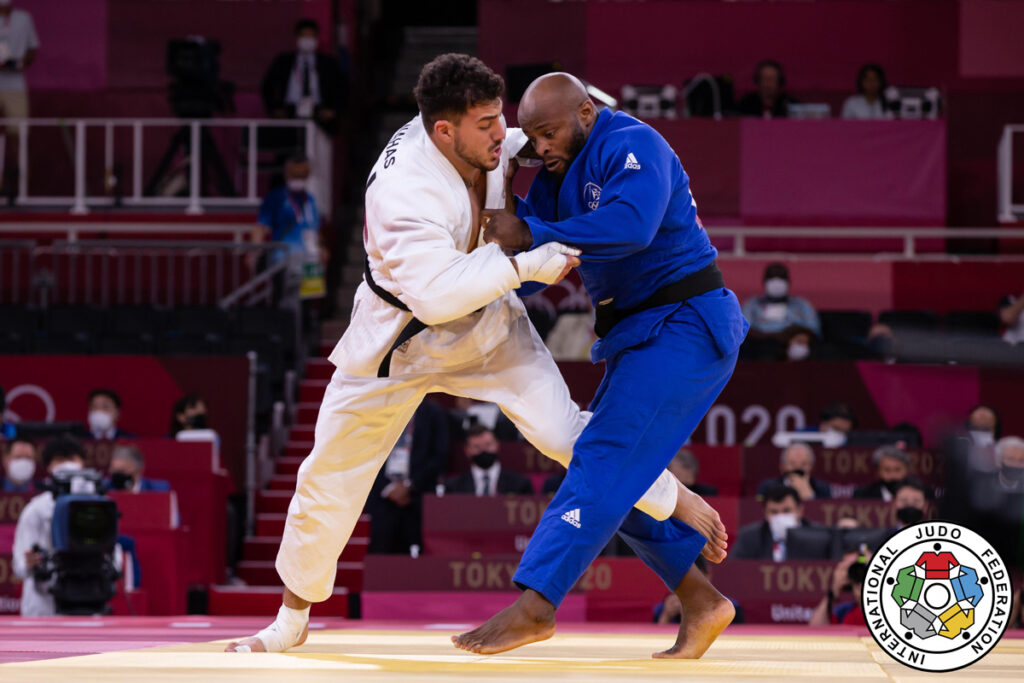
Shady Elnahas and Jorge Fonseca
Two Early Victories by Ippon
El Nahas had a great start to his day, clinching an ippon against Ivan Remarenco of the United Arab Emirates in the round of 32. He scored a waza-ari, then followed up with a hold on his opponent’s left leg in the second minute of regulation time.
In the round of 16, the Canadian completed a throw for a waza-ari about 30 seconds into his match against Azerbaijan’s Zelym Kotsoiev, who is ranked ninth in the world. After a second, almost identical throw, he thought he had won the bout, but in a strange and surprising turn of events, the referees did not award him the point. In the final minute, he landed another ouchi-gari to score ippon.
“I didn’t realize they had taken away my waza-ari until I saw my coach Sasha (Mehmedovic) ask what was going on. I too was really surprised they took away my waza-ari. It was a bit frustrating because every minute of a fight takes a lot of energy. I still think it should have counted, but it’s the refs who decide.”
In the quarter-final, Georgia’s Varlam Liparteliani was the one to put the brakes on El Nahas’ run. The number one ranked judoka in the world and Olympic runner-up in Rio scored a waza-ari in the second minute during a sequence of attacks, and then again with three seconds left, earning himself an ippon.
“I used to watch him when I was 12 years old. He’s been one of the best since 2012. So I know how he fights. I think I managed to block all his usual techniques. He’s one of the ones who drops the most weight in my division. He used his weight defensively and managed the fight well. I think I could beat him, but this was my first time facing him.”

Shady Elnahas and Zelym Kotsoiev
The Tokyo Olympic title went to Japan’s Aaron Wolf, who defeated Liparteliani in the semi-final and South Korea’s Guham Cho in the gold medal final. Niiaz Iliasov, of the Russian Olympic Committee, won the other bronze medal.
El Nahas now has his sights set on the Paris Games. “I don’t plan to stop competing in judo until I have an Olympic medal. Even if I’m 50 years old, I’m going to go for that medal,” concluded the two-time defending Pan-American champion.
Exceptional Olympic Games for Canada’s Judoka
The Tokyo Olympics will go down in history for Canadian judo. For the first time, Canada claimed two judo medals at the same Games. Jessica Klimkait (under-57 kg) and Catherine Beauchemin-Pinard (under-63 kg) both earned bronze medals in Japan.
Like his teammate El Nahas, Arthur Margelidon also came close to claiming an Olympic medal, placing fifth in the under-73 kg category.
Antoine Valois-Fortier, who lost his second clash in the under-81 kg class, and Ecaterina Guica, who was eliminated after her first bout in the under-52 kg group, were also members of Judo Canada’s strong delegation to the Japanese capital.



